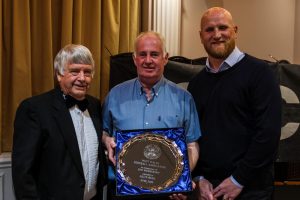WITH THE COUNTDOWN to the upcoming General Election, political parties are releasing their manifestos, leaving many confused about which best fits their views. To tackle this issue, Swansea University has helped create a new online voting tool.
Launched this week, WhoGetsMyVote allows voters to match their positions on key policy issues to those of political parties.
Voters are asked to state the extent to which they agree with a series of policy statements. Graphical displays then reveal how close they are to the political parties overall and on each issue.
The project is sponsored by the Wales Institute of Social and Economic Research and Data (WISERD) and is an example of the world-leading research enabled by WISERD’s Politics and Governance Research Network. It is also supported by Swansea University’s Public Policy and Practice Research Institute.
Since the election was called, academics, postdoctoral researchers and PhD students from Swansea’s Department of Politics, Philosophy, and International Relations have been involved in developing the questions used to match voters and parties, extensively researching and coding each party’s policies.
The project continues the work of Dr Matthew Wall, leader of the project’s Swansea team, harnessing digital technologies to empower voters and improve democracy.
Dr Wall, Head of the Department of Politics, Philosophy, and International Relations and Co-director of WISERD, said: “Vote matching websites are now established as an important part of election campaigns worldwide. The best ones, like WhoGetsMyVote, are free to use and produced by academic experts for the public good. They give voters a rigorously researched, non-partisan insight into how their preferences sit alongside parties’ policies.”
Dr Micha Germann, from the University of Bath, added: “Research shows that many voters aren’t fully aware of where political parties stand on various issues, and all the political spin just adds to the confusion. WhoGetsMyVote cuts through the noise, helping you quickly find which parties best align with your views.”
Previous versions of WhoGetsMyVote were available during the 2015, 2017 and 2019 General Elections and the 2014 and 2019 European elections. In total, the tool has been accessed by more than 500,000 voters.
There is evidence that tools like WhoGetsMyVote, known as Voting Advice Applications (VAAs), could help to increase voter turnout, particularly among younger voters. There is also strong evidence that VAAs do affect people’s voting intentions.
Dr Iulia Cioroianu, from the University of Bath, said: “WhoGetsMyVote gathers lots of ‘big data’ on what users think about key election issues, their current voting intentions, and their past voting habits. This makes it a fantastic resource for researchers who want to see how well the main parties are getting their messages across to different groups of voters as the election campaign heats up.”
WhoGetsMyVote is an exclusively non-profit project not affiliated with any political party or organisation and represents a diverse consortium of leading political experts from various universities and research centres across the United Kingdom and Europe.
The project is led by Dr Jon Wheatley (Oxford Brookes University) and Dr Micha Germann (University of Bath).
The Research Group belongs to public universities and consists of the following: Dr Matthew Wall (Swansea University), Dr Jon Wheatley (Oxford Brookes University), Dr Micha Germann (University of Bath), Dr Iulia Cioroianu (University of Bath), Dr Roula Nezi (University of Surrey), Professor Susan Banducci (University of Exeter), Professor Ailsa Henderson (University of Edinburgh), Dr Fraser McMillan (The University of Edinburgh), Dr Ed Poole (Cardiff University), Professor Richard Wyn Jones (Cardiff University), Dr Fernando Mendez (University of Zurich), Dr Vasiliki Triga (Cyprus University of Technology) and Dr Costas Djouvas (Cyprus University of Technology).














